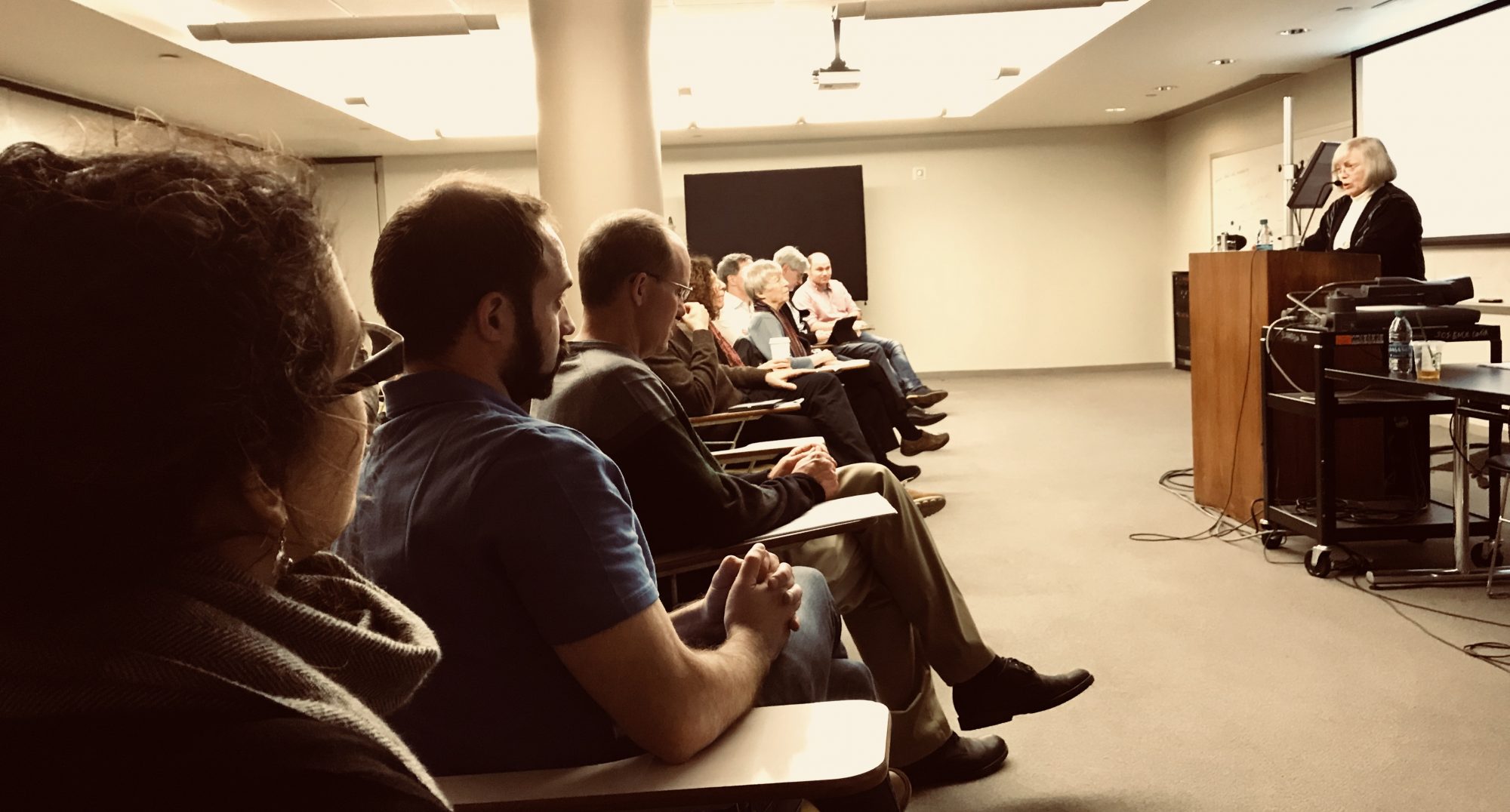 (Ph D U Michigan, 1970; Prof) Cultural anthropology, human ecology, economic anthropology,religion; Mesoamerica, North America, Middle East (slees@hunter.cuny.edu)
(Ph D U Michigan, 1970; Prof) Cultural anthropology, human ecology, economic anthropology,religion; Mesoamerica, North America, Middle East (slees@hunter.cuny.edu)
Susan H. Lees specializes in ecological and economic anthropology. The focus of her research (and numerous publications) on farmers and farming communities has been mainly upon power relationships related to irrigated agriculture in changing historical contexts. She has engaged in field research in Mexico, Peru, Brazil, and Israel during the past 35 years. Her theoretical focus has been on environmental crises and responses to them.
Recently, since 1998, she has turned her attention to a new interest, the adjustments of a fishing community in coastal Maine, to social, economic, political, and environmental change. Her first project involves the ways home based crabmeat producers on Deer Isle, Maine, are responding to bureaucratic governmental regulation which threatens to put them out of business. Explaining this means looking into the context of rural gentrification, local knowledge, the control of labor, and other issues.
Recent books and articles
- 1999 The Political Ecology of the Water Crisis In Israel. Lanham, MD: University Press of America.
- 1995 Rural Cooperatives in Socialist Utopia: Seventy Years of Moshav Development in Israel (edited, with M. Schwarts and G. Kressel). Westport: Greenwood Press.
- 1998 Cultural Diversity and Resource Use. With DeBuys, William, Crespi, Muriel, Merideth, Denise, and Strong, Ted. In: Johnson, N.C., A.J. Malk, W.T. Sexton, and R. Szaro (eds.), Ecological Stewardship: A Common Reference for Ecosystem Management. Oxford: Elsevier Science Ltd.
- 1997 The Rise and Fall of Peasantry as a Culturally Constructed National Elite, inKnowing Your Place: Rural Identity and Cultural Hierarchy. G Creed and B Ching, eds. University of North Carolina Press.



